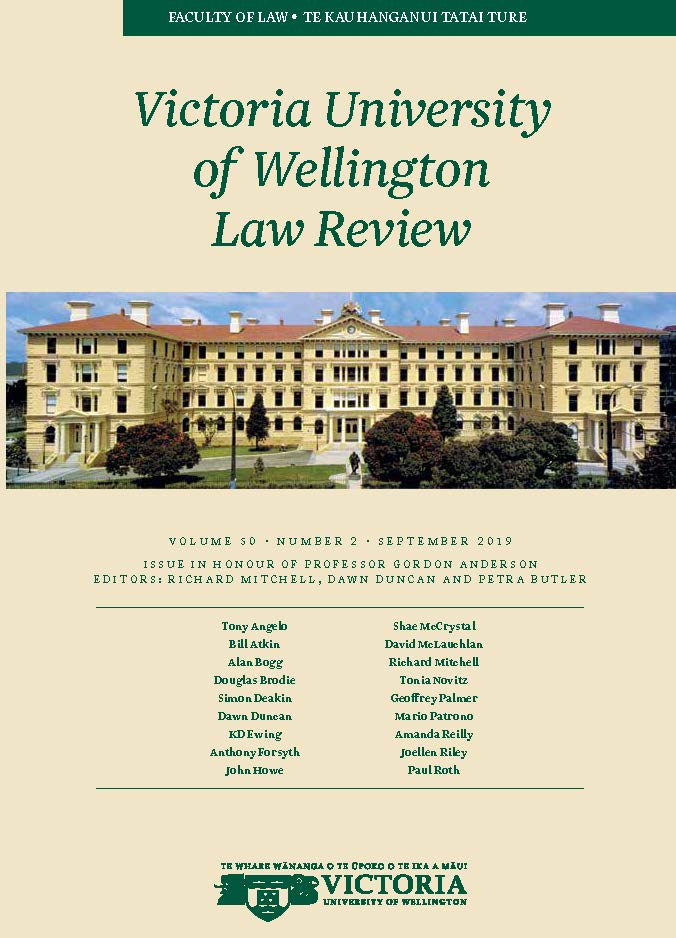Māori Women, Discrimination and Paid Work: The Need for an Intersectional Approach
DOI:
https://doi.org/10.26686/vuwlr.v50i2.5748Abstract
New Zealand has been at the forefront of labour regulation and views itself as a leader in the field of human rights. However, this article focuses on an area where the law is underdeveloped. It argues that the ongoing socio-economic inequality of Māori women is inconsistent with social justice, New Zealand's international human rights obligations and the Treaty of Waitangi. Improving access to paid work could help to address this, but the law does not adequately address the intersectional discrimination – discrimination on multiple grounds – that Māori women and others experience. New Zealand discrimination law, in both the human rights and employment jurisdictions, is largely comparator-based which is inherently flawed as a mechanism for addressing intersectional discrimination. Moreover, the law is poorly understood and weakly enforced. New Zealand also has limited affirmative action provisions; no quotas or targets are set with regards to improving the access to paid work of Māori women and very few New Zealand employers are required to report on matters pertaining to gender equality. The article concludes that the impact of intersectional discrimination on Māori women (and others) must be recognised and addressed and that a range of options is available to do this, if the political will were present.
Downloads
Downloads
Published
How to Cite
Issue
Section
License
Authors retain copyright in their work published in the Victoria University of Wellington Law Review.


